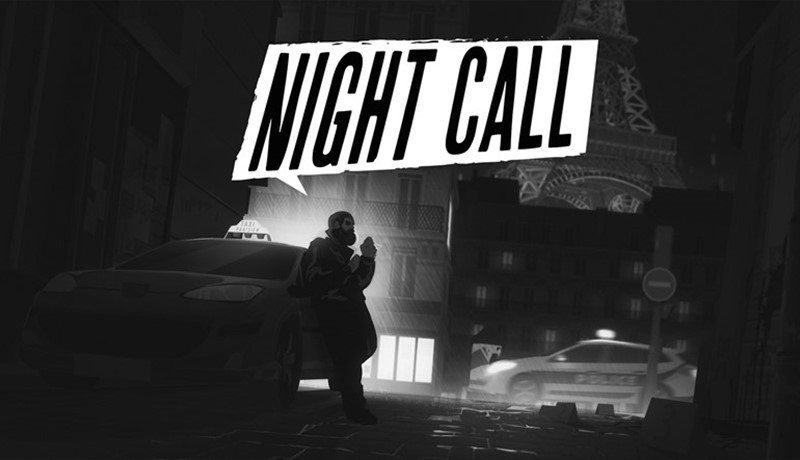
Night Call Review

People would mostly rather confess to their sins when they are talking to a cab driver than when they are in a church in front of a priest. The basic idea of Night Call has been shaped around this phrase. The developers in the Monkey Moon and BlackMuffin studios have tried to mix adventure and simulation genres to come up with innovative gameplay, something that we haven't experienced before. The final game is indeed a new experience, however, it suffers from major flaws both in the story and the gameplay. Unfortunately, some of these weaknesses are because of the imperfect combination of the two genres. Night Call was initially released on PC in 2019, and now it is available on consoles.
A serial killer is murdering innocent people in the streets of Paris. One night, when you are driving your cab, you suddently notice one of the killer's attacks. After some moments, you find yourslef in the middle of the murder scene. The serial killer supprises you from behind, and injures you with a knife. After a few weeks and leaving the hospital, a police officer comes to you and asks for help. She threathens you that if you do not help her, she reveals your dark past and also introduces you as the serial killer. Thus, you have no option but to search for the clues and identify the killer. The officer provides you with the name and infomation of five suspects, so you have only six days to introduce one of them as the serial killer.

You as a cab driver have only three sources of collecting clues: talking to the passengers who are sometimes the suspects, visiting some certain places on the map such as the murder scenes, and finally reviewing the information that police provide you. Thus, apparently, we are playing a thriller in which the goal is to unveil the serial killer's identity. However, this is not totally true as the game introduces several elements from the simulation genre. In fact, we are dealing with a cab driving simulator more than an adventure. Talking to random passengers and earning money are two important parts of the gameplay. You need to pay for life's expenses, your boss portion, and for the gas, therefore, you should take people to their destination independent of the fact that whether they are connected to the murders' story or not.
A combination of the adventure and the simulation genres hasn't paid off in Night Call. More than seventy percent of the game is dedicated to taking the passengers who don't have any connection to the main story. Thus, we should play a game that is extremely discrete in terms of the story, and unsuccessful in encouraging the gamer to persuing it. It seems that the developers didn't have any focus on the murders' story, and thus they failed to dissolve the adventure part correctly in the cab simulator's part.

The gameplay is shallow in Night Call. There are only a few means to interact with the game's world such as choosing your passengers, selecting some of the dialogues, and specifying one of the suspects as the killer. During the game, some characters randomly appear on the map, so you can take them to their destinations. Choosing different dialogues mostly changes the next upcoming dialogues with your passenger but it doesn't have any effect on the game's story. At the and of each night, you can see the collected clues on your board. The game uses a very simple mechanism to connect the clues to the suspects. I believe the developers could have taken advantage of a more complicated system for the clues, and made the board a strong part of the gameplay.
The most enjoyable part of the game is when you are listening to the passengers. Each of them has a unique story to tell. Sometimes the story is sad and shocking, and sometimes it's funny. A young girl who is traveling to Greece to help the refugees, a musician who has been forgotten, and two lesbian partners who are searching for a sperm donor are only a few examples of these weird stories. In the heart of these stories, there are some sharp criticisms about politics, poverty, and even racism. The dialogues between the cab driver and the passengers even remind me of a famous movie by Jim Jarmusch called "Night on Earth" in which the main theme is the same as Night Call.

Although the passengers' stories are the best parts of the game, there is an important question about them. Why should we see them in a video game? If we're going to see all dialogues in some text boxes, and there aren't real animations in the game (we mostly see pictures with minor animations), why should they be presented in the medium of the video game? Especially, when these stories are often independent of each other and also from the main story. Probably, publishing them in a book would have resulted in a better experience for gamer/reader.
Night Call doesn't enjoy fair difficulty. Even in the easiest difficulty (Story), the game is still very challenging because your money is spent very fast. If you lose all your money, or if you run out of gas, the game ends for you, and you should start from the beginning. Some of the passengers don't have any money to pay, but the game doesn't warn you about it. This sometimes causes big trouble for you and even pushes you to the edge of losing. I suggest you play the game in the easiest difficulty to avoid the troubles of managing money as much as possible.

Verdict:
Night Call fails to correctly combine the adventure and the simulation genres, thus, we are dealing with a game that is extremely discrete in terms of the story and very frustrating and dull in terms of the gameplay.

